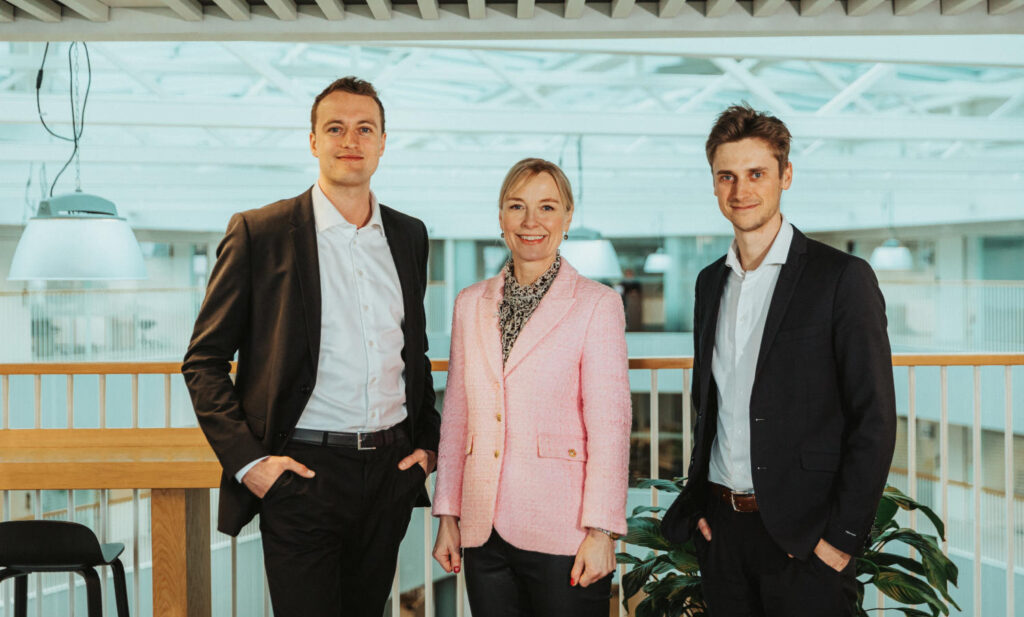The capitals of the world are engaging in a battle royale of Darwinistic proportions — some armed with regulatory sandboxes, others with fintech unicorns — and they all eager to attract and educate a financial-savvy workforce.
It really is a battle for survival: countries are fighting to locate and attract talent as well as capital to enable innovation and the growth of their local economy and to become a frontrunner in a new, global, fintech combat zone.
Deloitte‘s “Tale of 44 cities” ranks how innovative each city’s culture is, and provides an account of the amount of governmental support financial technology receives as well as a host of other parameters. Copenhagen has come a long way and was rated number 16 among the world’s largest cities in 2017, earning a place in the European top ten.
These results have not gone unnoticed by Brian Mikkelsen, Minister of Industry, Business and Financial Affairs:
“The progress that has been made is impressive. Fintech is a significant sector not only because of its innovative solutions but also because of its potential for creating jobs and economic growth. Our position in the Deloitte report is remarkable, but we want to get higher and make the top five by 2025. For that to happen, we must create the best conditions to further scale the current success stories, and also unleash the potential I see when I visit early-stage fintechs.”
The regulatory road to a fantastic ecosystem
Overall, the national financial ecosystem has seen serious improvement when it comes to regulations. The Danish authorities are working to remove administrative roadblocks and the FSA has established a regulatory sandbox drawing on British inspiration. As Mikkelsen points out, however, there is still more work to be done in that department:
“We must ensure that regulations don’t put Danish companies at odds when they are competing with companies from other developed countries. That is why we have recently conducted an inspection of our financial regulations and found a number of specific initiatives that will make the life of Danish companies much easier.”
Another regulatory sore point for startups has been the high wage limit necessary to be able to offer expert tax for employees. While the minister hopes to lower the amount from the current 418.000 kroner, he also stresses that he has no intention to change the ‘expert taxation’ which gives researchers from EU the opportunity to be taxed at 31.2 per cent. This requires a minimum salary of 65,1000 per month—an amount that very few private SMEs are capable of matching.
Regulatory authorities have other ways, too, to boost the development of the fintech sector. Education could be the solution—at least partly—to the burning problem of lack of tech talent.
“We have created Teknologipagten, which will increase educational focus on the STEM area. Those types of experts will be scarce in the future. We are looking to increase the number of those students by introducing a subject targeting an in-depth understanding of technology. In that regard, we are on our way to supply a component that has been missing from our education system,” explains Mikkelsen and continues:
“It is my ambition to make Copenhagen a fintech powerhouse. That is also why I back the ‘Copenhagen Financial Hub’ initiative. The project aims to attract more foreign financial players in order to build the critical mass needed for an even stronger financial centre in the capital.”
The rules of fintech attraction
PFA Pension is also part of “Copenhagen Financial Hub” and the second largest fund in Denmark’s strong pension sector (see page 12-13). Allan Polack, its CEO, believes that Copenhagen must attract more foreign talents and companies to reach the next tier of fintech.
“We support a stronger Copenhagen because we believe that by achieving it, we can attract a higher number of competent talents and partners. Whether that involves us investing in fintechs is secondary. Our priority is to empower the ecosystem in Copenhagen,” underlines Polack.
One of the main advantages of this small Nordic nation is the fact that most of its infrastructure is highly digitalised. What’s more, its population is tech-savvy, so it is perfect for pilot-testing new financial services. The average Dane rarely uses cash anymore and spends more time on the internet than the citizen of any other nationality.
“We have a really powerful digital structure in Denmark. If you think about it, it is quite unique that a country has created an entity like NemID that strongly motivates the population, the youth and the elderly alike, to become digital. No other country has made that kind of effort. It is a very clear signal that shows that the society is ready to step into a digital future,” says the CEO.
That digital quality also makes the Danes great hires, but there are two other elements of the Danish talent pool that remain undiscovered by most.
“Many do not realise how easy it is to scale up and down employment due to our labour laws. That flexibility is extremely important for the fintech sector that, by default, is very unstable. In addition, the Danish labour is cheap compared to London—but also to Sweden, where the wages are taxed more heavily than in Denmark,” points out Polack.
The race to the fintech front takes faith and fuel
All this is not to say that everything is perfect. There is room for improvement regarding funding, a key necessity for a fintech ecosystem to thrive. It is not only VCs that should take heed: larger financial players should also do everything in their power to improve the fertility of the Danish fintech soil.
“I can’t just laud all our efforts. When it comes to raising capital, I would say that the experience thus far is mixed—to put it mildly. It appears that the foundation for financing fintechs is not fully developed. It is progressing slowly, but I think that the establishment needs to improve its ability to absorb new ideas. They have the financial power to cover the gap from VC to scale-up,” warns Polack.
Whether or not PFA will take part in that effort Polack does not wish to disclose. He does acknowledge, however, that the pension colossus is keeping a close eye on what is happening in fintech, health tech and regulatory tech.
“We need to keep strengthening our position so Copenhagen becomes an even tougher rival for London and Frankfurt. I think the biggest challenge is to have faith in Copenhagen as an actual alternative. Sometimes I sense that there is a lack of that. Ultimately though, the fact that the Ministry of Industry, Business and Financial Affairs is a partner and strong believer is very encouraging,” concludes Polack.
This article was published in the Copenhagen Fintech 2018 magazine written by TechSavvy Media. You can see the full magazine via this link.










 Kære læser, du er meget velkommen til at dele vores artikler på sociale medier, linke eller referere til artikler eller content på TechSavvy.media. Men ønsker du helt eller delvist at kopiere indhold fra sitet må det kun ske efter aftale med vores redaktion på editorial@techsavvy.media.
Kære læser, du er meget velkommen til at dele vores artikler på sociale medier, linke eller referere til artikler eller content på TechSavvy.media. Men ønsker du helt eller delvist at kopiere indhold fra sitet må det kun ske efter aftale med vores redaktion på editorial@techsavvy.media.
 Kære læser, du er meget velkommen til at dele vores artikler på sociale medier, linke eller referere til artikler eller content på TechSavvy.media. Men ønsker du helt eller delvist at kopiere indhold fra sitet må det kun ske efter aftale med vores redaktion på editorial@techsavvy.media.
Kære læser, du er meget velkommen til at dele vores artikler på sociale medier, linke eller referere til artikler eller content på TechSavvy.media. Men ønsker du helt eller delvist at kopiere indhold fra sitet må det kun ske efter aftale med vores redaktion på editorial@techsavvy.media.